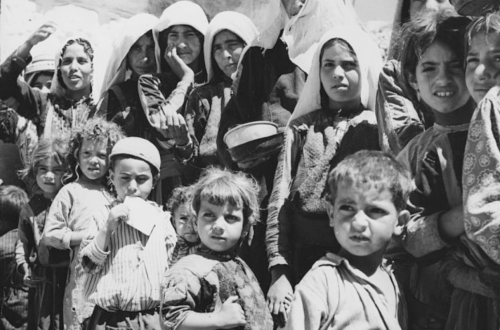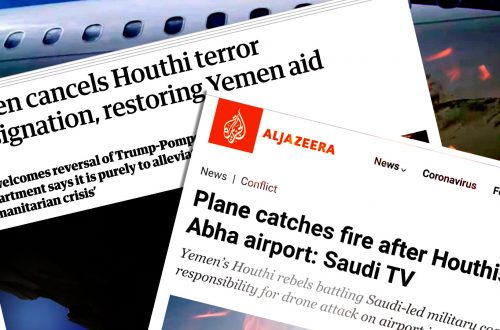Cross-posted from Terry Glavin at The Propagandist
Because when the only alternative available to the poor is to overthrow the regime, that's exactly what the poor will attempt.
In Syria: "The grossly uneven distribution of the national income has concentrated incomes and capital in the hands of a limited few. The share of wages from the national income was less than 33 percent in 2008-2009, compared to nearly 40.5 per cent in 2004, meaning that profits and rents command more than 67 percent of the GDP. This measure does not exceed 50 percent in the most liberal capitalist states. . . Young people have transformed their personal agony into collective anger and rejection of the present situation and future prospects that offer them no hope of decent living standards. They have made the conscious connection between the regime’s repressive governance mechanism, corruption, and the difficult living conditions they endure."
In democracies, you can vote the bastards out. In police states, you can't. There is a pathetic tendency in the chattering classes of the NATO capitals to ignore the real distinctions and differences among and between what is apprehended as an undifferentiated mass of "Arabs." In the world's democracies, much is made of the Islamist threat. It is very real, but Islamism is a far greater threat to the Arab Spring: the Islamists do not articulate the aspirations of ordinary working people in any Muslim-majority society, and where they are not running the show directly, Islamists tend to be the best-organized and best-financed. One should not have to come from the "left" to notice that jihadists, who are merely Islamists in a hurry, are the spoiled children of the Muslim bourgeoisie. Anne Applebaum puts it this way:
These people are not the wretched of the Earth. Nor do they have much in common, sociologically speaking, with the illiterate warlords of Waziristan. They haven't emerged from repressive Islamic societies such as Iran, or been forced to live under extreme forms of sharia law, as in Saudi Arabia. On the contrary, they are children of ambitious, "Westernized" parents who sacrificed for their education — though they are often people who, for one reason or another, didn't "make it," or didn't feel comfortable, in their respective societies. Perhaps it sounds strange, but they remind me of the early Bolsheviks, who were also educated, multinational and ambitious, and who also often lacked the social cachet to be successful. Lenin's family, for example, clung desperately to its status on the lowest rung of the czarist aristocracy.
During the 30 years preceding September 11, 2001, while the manifestos of millionaires like Osama bin Laden contained endlessly grisly bromides about Jews and crusaders and Freemasons and such – and while the spoiled children of the Western bourgeoisie raved on about the crimes of the Zionists – overall economic growth in Arab countries during those three decades was negative. In the Gulf states, real GDP per capita shrank 2.8% every year. Although they try to hide it, Qatar, Oman and Egypt show Gini coefficients (which measure inequalities between rich and poor) that are among the highest levels in the world. Stack all that sort of thing together with the brutality of military-industrial complexes like the corporate octopus known as the Iranian Revolutionary Guards Corps, or Egypt's military apparatus – now a major corporate player in the olive oil, cement, construction, hotel and gasoline industries that rivals the industrial-monopoly penetration that Pakistan's ISI has secured for itself in Pakistan – and there's nothing left for anyone else to do except submit to the savage corruption of it all or plot the tyranny's overthrow.
To risk a gross understatement, capitalism alone is no guarantor of prosperity, but by itself the poverty that afflicts the subjects of Arab police states is not an indicator of a looming revolution. Neither does poverty alone breed Talibanism or any of its South Asian and Central Asian variants. If that were the case, the so-called "insurgency" in Afghanistan would be coming out of Hazarajat, the poorest region in that blighted country, but Hazarajat happens to take in the most peaceful and pro-democratic terrain in all Afghanistan.
In Pakistan, all the empirical evidence demonstrates that there is absolutely no connection between poverty and jihadism. The poor are in fact less likely to support extremist groups than the rich, and in such drone-prone areas as Waziristan, the poor harbour sentiments opposite to those of the Chomsky-fancying anti-American society dandies in Islamabad. Among the people of Waziristan and throughout the tribal belt, the brave Farhat Taj has found: "They see the US drone attacks as their liberators from the clutches of the terrorists into which, they say, their state has wilfully thrown them." As a general rule, everywhere you look, jihadist leaders are right-wing toffs, and suicide bombers who are not mentally handicapped or duped children are "mild-mannered members of the middle class."
The west's comfortably "anti-war" pseudo-left seems to have failed to notice any of this. But is the Arab Spring less about democracy and human rights and more about work and wages?
"Actually, this frequently asked question is misconceived,"Jane Kinninmont points out. "It rests on a false dichotomy between ‘politics’ and ‘economics’, which are convenient labels for different academic disciplines, and should not be mistaken for genuinely different or separate spheres of reality."
Harken to 1776 ,1848, 1968 or 1989, as you like. The revolution will never be "over."
Long live the revolution.

